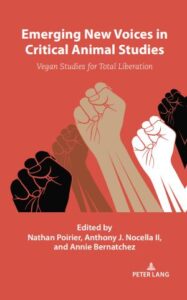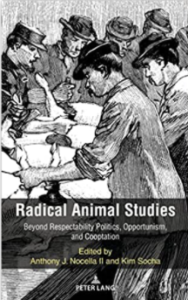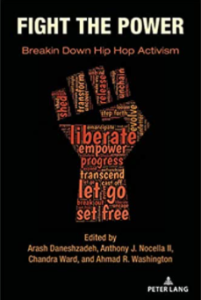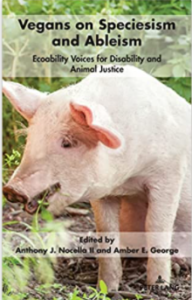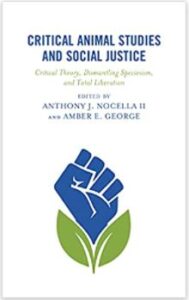Chloe Diamond-Lenow
The Biopolitics of Species in War: Un/Making Human and Animal Rights
By, Chloe Diamond-Lenow, PhD Candidate in Feminist Studies at the University of California, Santa Barbara
Abstract
This paper considers the relational un/making of human and animal life in the “war on terror” by analyzing how the anthropocentric characteristics of the human rights-bearing subject have been transferred to replicate the liberal rights-bearing subject in the embodied identities of certain dogs framed as vulnerable victims needing “rescue” from the “cruelty” of “monstrous” Arab men (Butler 2004, 2009; Puar 2007). It argues that in this war, American affective economies (Ahmed 2004) of “puppy love” grant certain dogs folded into the national and military project with a right to life, while condemning Muslim/Arab/Middle Eastern men (see Volpp 2001) to death, as these men are figured as the monstrous agents of violence who threaten these dogs’ lives. The result is to give “face” in the Levinasian sense to dogs in the national military project concomitant to “de-facing” Middle Eastern people who are subject to that project. Under these terms of racialization, some animal lives are rendered as more valuable than some human lives. Such a shift positions dogs firmly as rights-bearing liberal subjects—as a rational, conscious beings, despite liberalisms founding abjection of the animal in relation to the conscious and rational human. This shift exposes how animals may come to occupy the space of the liberal subject of rights as the Muslim/Arab/Middle Eastern person is denied such subjectification. This shift further exposes how rather than undoing the foundation of the liberal humanist subject within ethics, frameworks that seek to embrace a non-anthropocentric vulnerability risk recuperating the humanist subject and an exclusionary form of abjection that undergirds such a position. Thus, this paper exposes moments in public discourse and policy where “animal rights” are made to trump “human rights”—where the precarity of the animal is used to trump the precarity of the human— questioning under what conditions, and toward what justifications, these frames of precarity and vulnerability are rendered hypervisible or are foreclosed.
Bio
Chloe Diamond-Lenow is a PhD candidate in Feminist Studies at the University of California, Santa Barbara (UCSB). Chloe is co-convener and founder of UCSB’s HumAnimality Research Focus Group. She works at the intersections of feminist theory, queer theory, postcolonial theory, cultural studies and critical animal studies. Her dissertation “Boundary Affects: Race, Gender, Sex and Species” analyzes how discourses about, and affective investments in, human and animal intimate relationships circulate in the “war on terror” to (re)produce and undo the racialized, gendered and sexualized boundary between “human” and “animal.”

